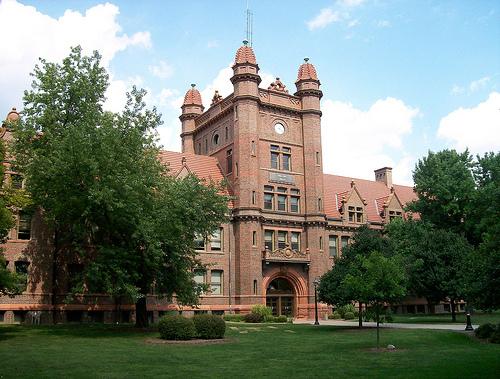Decaturian Editorial #2
If This is Really Our University's DNA, Let's Prove it.
September 2, 2020
A few days ago, Millikin’s new president, Dr. Jim Reynolds, sent out a campus-wide email addressing the recent shooting of Jacob Blake. Dr. Reynolds reaffirmed that Millikin stands against hatred and supports oppressed groups in their fight for justice.
“Diversity, inclusion, dignity and respect for all people aren’t just words on a piece of paper,” Reynolds wrote. “They are the DNA of our University.”
Let’s prove it.
In a time when hatred seems more prevalent than ever, when anger is the knee-jerk reaction to what we don’t understand, when fear dominates as we undergo a global pandemic and a historic election…let’s prove that hatred, anger, and fear have no place at Millikin.
College students have always been social justice leaders. From the Vietnam War and the Civil Rights Movement to the AIDS crisis, they have led protests and conversations. Young people are often the ones who address the problems of their generation and actually take tangible steps to fix them.
This moment is our chance to do the same. We can do our part to improve the world.
Over the summer, Millikin students masked up and joined, or even organized, Black Lives Matter protests. They took to the streets to demand justice for Black victims of racist policing. Many students signed petitions and contacted public officials, urging their local governments to reexamine policies or reallocate funds to outreach programs instead of police departments.
And a lot of students looked in the mirror and began to recognize their own privilege and the ways that they have benefitted from white supremacy. They worked to unlearn biases and question racist beliefs. They pushed themselves to be better.
It is shameful that our country is only just now working toward this in 2020. But finally, we’re starting to move forward.
Millikin, bring what you learned back to school. The summer is over, but the shooting of Jacob Blake proves that there is still so much work to be done. Don’t get complacent because we’re back at school; this is the place to push even harder for justice and education.
After all, our country has a lot of work to do, but so does our campus.
Dr. Reynolds talks of Millikin’s DNA, but Millikin is not immune to the problems that our country is facing. It’s in the nature of college students to want to understand and improve the world around them; for many of us, that’s why we decided to go to college. Let’s start by improving our campus.
The Decaturian is working to improve, as well. When our writers educate themselves, seek understanding, and promote conversation, our paper grows stronger. As student journalists, we are constantly learning and pushing ourselves to become better: better students, better reporters, better people. We are excited to see how the Dec grows with our writers and our university.
That growth starts with listening. That’s our job as reporters: to tell the stories of the people who need to be heard.
“I do not have the same shared experiences that they do,” Reynolds wrote. “But I want all of them to know that I see them, I hear them, and I will work for and with them to find an inclusive way forward through this difficult time.”
Dr. Reynolds, welcome to Millikin. We want to believe you, so listen to us when we ask what you and your administrators are doing to address racism, sexism, and transphobia on campus. What are you doing to protect the students you claim to hear?
And students, ask yourself the same thing. What are you doing to fight for your peers? What are you doing to improve your campus and yourself?
As our world grows more hateful, angry, and afraid, Millikin needs to grow in the opposite direction. We are working to better ourselves because that is how we better the world, and this work continues. Don’t let this fade as the school year continues. Entire social justice movements have started and strengthened on college campuses, and Millikin has the potential to be a microcosm for the improvement that we want to see in the world.
And according to Dr. Reynolds, it’s in our DNA. So Millikin, let’s prove it.
